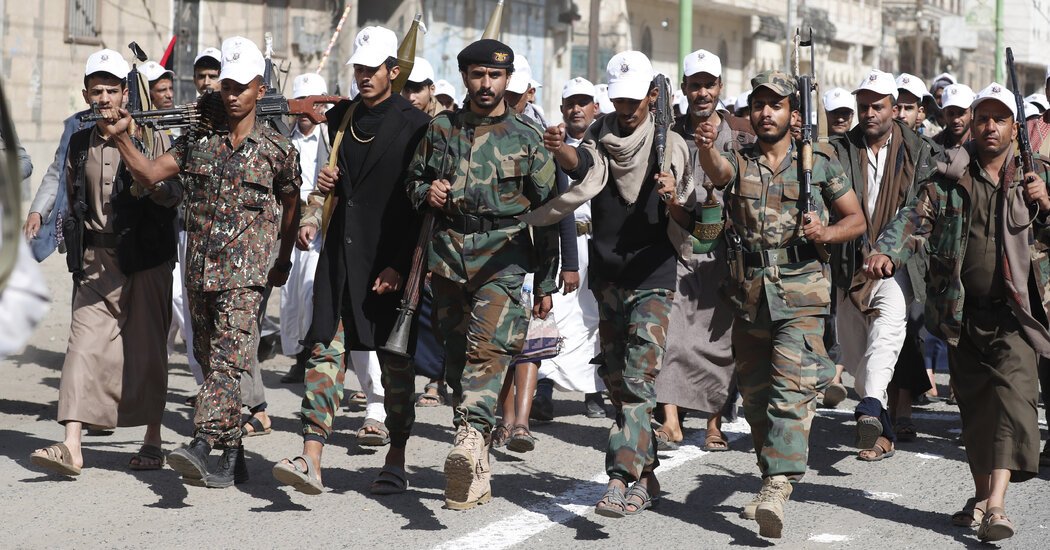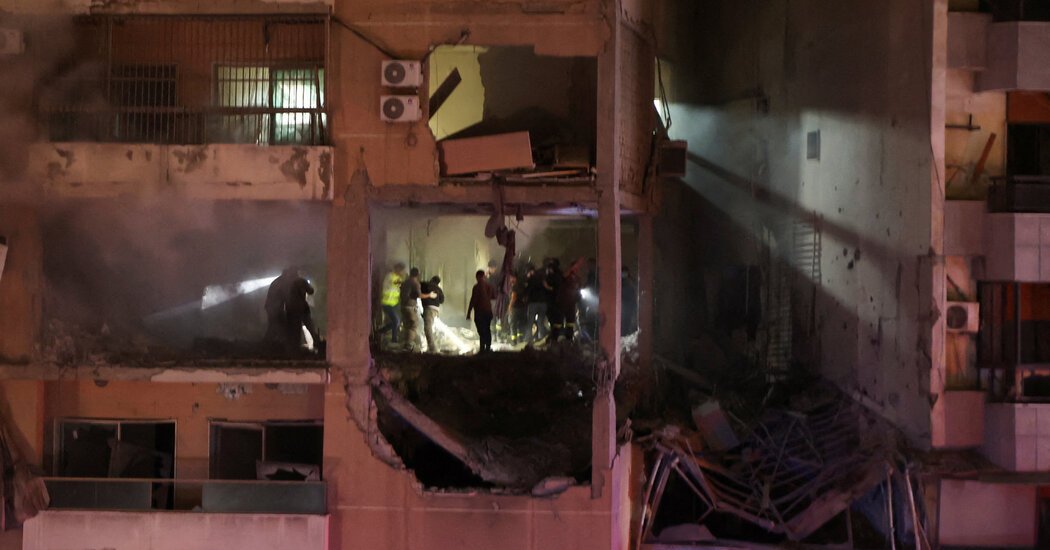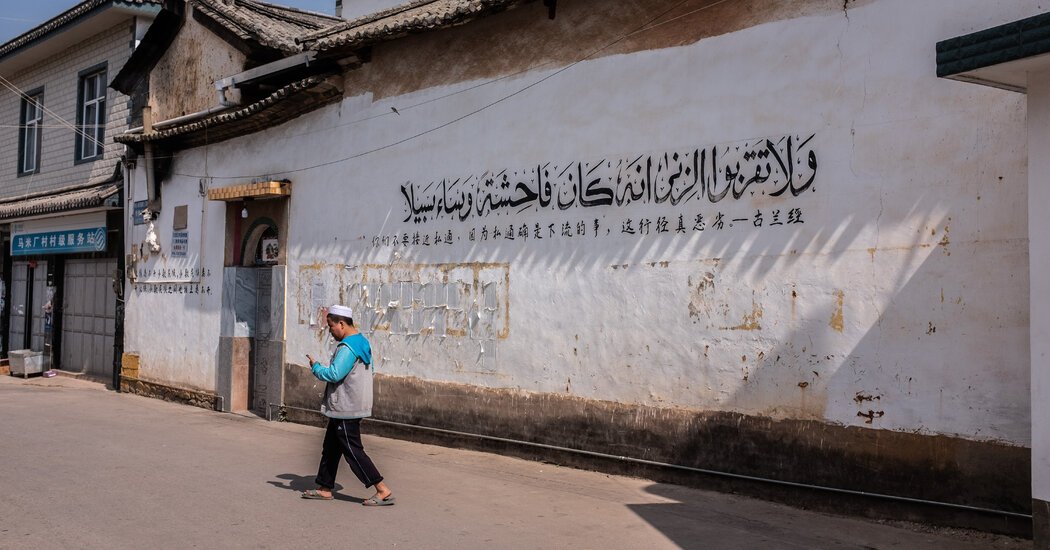For nine years, Yemen was torn by a war that erupted when the Houthis, a Yemeni militia supported by Iran, ousted the government and took control of the country’s northwest.
Alarmed by an Iran-linked group taking control across the border, Saudi Arabia assembled a military coalition and launched a bombing campaign, backed by American weapons and support, in an attempt to reinstate the government. Instead, hundreds of thousands of people died from fighting, starvation and disease, and the coalition pulled back under international pressure, leaving the Houthis in power.
When 2023 dawned, it looked as if the Houthis and the Yemeni factions they had been fighting were finally ready to sign a peace deal. But then the war in Gaza began, and now the prospect of peace is unraveling.
The Houthis launched a series of attacks on ships in the Red Sea, a U.S.-led military coalition began pounding Yemen with airstrikes — including an intensive barrage on Sunday — and a U.S. decision to designate the Houthis a terrorist group temporarily blocked a crucial element of the peace process.
Anti-Houthi groups in Yemen saw an opening to claw back territory, and began calling for international support to reignite their fight. All of that has spoiled hopes that many diplomats had for the United Nations-backed peace deal, which had looked imminent for much of last year.
“The escalation in the Red Sea has resulted in the direct suspension of a deal that was anticipated to be announced in recent months,” said Ahmed Nagi, a senior Yemen analyst at the International Crisis Group, a think tank. “The U.N.-led political discussions are presently at a standstill.”
Yemen, at the southern tip of the Arabian Peninsula, is the poorest country in the Middle East. The conflict there began in 2014, when Houthi fighters swept into the capital, Sana, and took over state institutions. The years of war that followed pushed the country into one of the world’s worst humanitarian crises and left the Houthis entrenched in power in northern Yemen, where they have created an impoverished quasi-state that they rule with an iron fist.
Over the past two years, the fighting had largely quieted.
Saudi Arabia, which borders Yemen to the north, began direct talks with the Houthis in an effort to extract itself from the war, and diplomatic moves to resolve the conflict intensified.
In late December, the United Nations special envoy for Yemen, Hans Grundberg, announced that the rival parties had taken a significant step toward ending the war. At the time, the Houthis had already started attacking ships in the Red Sea. But inside the country, a de facto truce had taken hold, and the Houthis had committed to steps that could eventually lead to a lasting peace, Mr. Grundberg said at the time.
“Thirty million Yemenis are watching and waiting for this new opportunity,” he said.
In an essay in Foreign Affairs several months ago, Jake Sullivan, President Biden’s national security adviser, lauded the period of relative calm in Yemen, saying that it was partly “thanks to persistent and principled U.S. diplomacy.”
Now, the Biden administration is pursuing a multipronged strategy “to get the Red Sea back under control as quickly as possible,” Tim Lenderking, the U.S. special envoy for Yemen, told The New York Times in an interview.
That involves using airstrikes to weaken the Houthis’ abilities to attack ships, stepping up efforts to interdict Iranian weapons sent to the militia and increasing diplomatic efforts to pressure the Houthis, he said.
“The Biden administration continues to prioritize resolving the Yemen conflict, though it’s hard to see any international support for the Houthis sitting around the negotiating table with the Yemen government while the Houthis are firing on ships,” he added. “The wisest course of action is for the Houthis to stop their attacks on ships.”
For the parties that spent years fighting the Houthis, though, the sudden global spotlight on Yemen presents an opportunity.
Rashad al-Alimi, the head of Yemen’s internationally recognized government, called recently for international backing for a new ground offensive against the Houthis in Yemeni territory overlooking the Red Sea.
“These regions must be liberated from Houthi control,” he said in a rare briefing with the international news media. “The solution is to eliminate the Houthis’ military capabilities.”
The United States is not considering arming or financing any of the anti-Houthi Yemeni factions, Mr. Lenderking said.
“We don’t want to fan the flames of military conflict inside Yemen,” he said. “Yemen for the past two years has been a story of progress; the world wanted to, and continues to, support Yemeni peace and prosperity for Yemenis.”
But even before the war in Gaza began on Oct. 7, many political analysts and Yemenis had expressed skepticism about the sustainability of the peace process.
“Even if the U.N.-led process does move forward, it would likely lead to essentially an agreement between Saudi Arabia and the Houthis that doesn’t solve the underlying conflict between the Houthis and the anti-Houthi forces” inside Yemen, said Alex Stark, an associate policy researcher at the RAND Corporation, a think tank.
Over the past few years, diplomats and analysts have also expressed fears that tensions between Saudi Arabia and the United Arab Emirates could complicate efforts to end the war. The two U.S. allies in the Gulf had worked together in the Saudi-led coalition to fight the Houthis, but later appeared to pursue different goals in Yemen.
While the Houthis control the northwest, where most of Yemen’s population lives, much of the rest of the country is controlled by the Southern Transitional Council, an armed separatist group backed by the Emirates that is calling for an independent southern Yemen.
Today, the internationally recognized government is led by an eight-member presidential council that is plagued by infighting, with its members united only in their opposition to the Houthis. Many Yemenis derisively call it “the government of hotels” because it governs largely in exile.
Mr. al-Alimi, the head of the presidential council, is believed to spend much of his time in the Ritz-Carlton Hotel in Riyadh, the Saudi capital. The vice president is Aidarous al-Zubaidi, the leader of the Emirati-backed separatist group, which previously fought against Yemeni government forces.
“What we agree, we move forward with, and what we disagree on, we delay a bit,” Mr. al-Alimi said when asked about tensions within the council.
He said that the Yemeni government was “ready for a peace process,” although he argued that at first, more fighting might be necessary to force the Houthis to come to the table.
But in early January, Amr Al Bidh, a senior official with the Southern Transitional Council, openly criticized the U.N.-led “road map” to peace. He called it a Saudi-led plan and said his group was not sufficiently consulted, adding that he believed it contained elements that would “empower” the Houthis.
“We have to first stop the road map, and then let’s think seriously about doing something on land,” he said — referring to a new ground offensive against the Houthis.
In December, Mr. Grundberg, the U.N. envoy, said that the peace plan he hoped to move forward with would include a cease-fire, a resumption of oil exports from Yemen and an easing of restrictions on the airport in Sana.
It would also include an element that is crucial for the Houthis and many Yemeni civilians — salary payments for public sector workers in Houthi-controlled territories who have gone without pay for years. That payment would be impossible under the terrorism designation that the United States has said it will implement soon against the Houthis.
American officials have already issued special licenses to ensure that humanitarian aid can continue and that businesses can import food, medicine and fuel into Yemen, including through Houthi-controlled ports, a U.S. official said, speaking on the condition of anonymity because of the sensitivity of the matter.
Officials could issue an additional license that would facilitate the payment of the salaries if the Houthis pursue the path of peace, he added. If they do, the United States is willing to reconsider the designation altogether, the official added.
But so far, the Houthis have shown little interest in stopping their attacks.
The Houthis “will confront the American-British escalation with escalation,” Mohammed al-Bukhaiti, a senior Houthi official, said on the social media platform X.
Eric Schmitt contributed reporting from Washington, and Saeed Al-Batati from Al Mukalla, Yemen.





